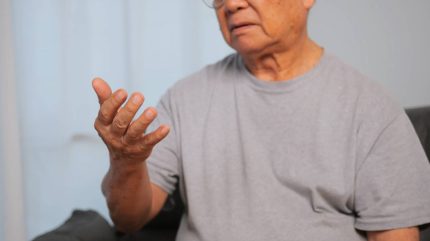
A first-in-human trial of Arvinas’ investigational Parkinson’s’ disease therapy, ARV-102, has been able to demonstrate a drop in the multifunctional protein that has been associated with the disease whilst also surpassing the blood-brain barrier.
The Phase I single ascending dose (SAD) and multiple ascending dose (MAD) trial (EUCT-2023-507910-28-00) found ARV-102, a proteolysis targeting chimaera (PROTAC) therapy, led to a drop in leucine-rich repeat kinase 2 (LRRK2) across healthy volunteers. LRRK2 is associated with an increased risk of both autosomal dominant Parkinson’s disease and Crohn’s disease.

Discover B2B Marketing That Performs
Combine business intelligence and editorial excellence to reach engaged professionals across 36 leading media platforms.
In the SAD cohort, a single oral dose of at least 60mg of ARV-102, alongside further once daily repeated oral doses of at least 20mg, achieved greater than 50% LRRK2 reduction in the volunteer’s cerebral spinal fluid. As well as a more than 90% LRRK2 reduction in the peripheral blood mononuclear cells (PBMCs). Investigation in the MAD cohort is still ongoing.
Additional results from the SAD cohort found that ARV-102 at single doses of more than 30mg induced more than 50% decrease in peripheral phosphor-Rab10, a biomarker used to determine the therapy’s ability to impact downstream of the blood-brain barrier.
Noah Berkowitz, CMO at Arvinas, said: “The ability of ARV-102 to cross the blood-brain barrier and degrade the LRRK2 protein offers a potentially transformative therapeutic approach in the treatment of devastating neurodegenerative diseases.
“We believe these results support continuing our ARV-102 clinical program and building upon our body of evidence for this lead PROTAC degrader candidate in our neuroscience pipeline.”

US Tariffs are shifting - will you react or anticipate?
Don’t let policy changes catch you off guard. Stay proactive with real-time data and expert analysis.
By GlobalDataResults from the randomised, double-blind, placebo-controlled were initially announced as part of the 2025 International Conference on Alzheimer’s and Parkinson’s Diseases (AD/PD) in Vienna, Austria.
In the Phase I trial, the therapy was relatively well tolerated, with some adverse events (AEs) reported. Approximately 47 volunteers were recruited across all SAD dose levels with headaches reported in 17.1% of patients. Procedural pain associated with the lumbar puncture occurred in 28.6% of treated volunteers compared to 41.7% in placebo controls.
Renewed hope for PROTAC
This comes weeks after Arvinas’ stock took a 51% after its PROTAC therapy for human epidermal growth factor receptor 2 (HER2) negative breast cancer therapy, being developed with pharma giant Pfizer, saw mixed results as it was only able to extend progression-free survival (PFS) in certain patients. The trial was conducted as part of a $2.4bn partnership between the companies. This latest Parkinson’s data gives renewed hope to Arvinas for PROTAC therapies.
Elsewhere in the field of Parkinson’s disease therapies, Cerevance is continuing an ongoing pivotal study of its Parkinson’s candidate despite it showing no benefit compared to placebo in a Phase II study.





